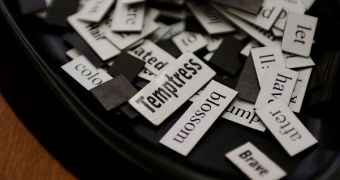Language is one of the things that constantly change, and not over the years, but several times in the course of an average life span. The engines behind these changes are the people, a researcher proposes, saying that the process through which language changes to reflect daily routines and actions is very similar to the evolution of animal and plant species trying to adapt to their environment. Dutch scientist Frank Landsbergen, who is based at the Netherlands Organization for Scientific Research (now), believes that this angle on language may help explain some of its mysteries, over which researchers have been scratching their heads for a long time.
The expert believes that even a single individual can spark a change in the language, even if it's as small as putting a new word in the dictionary. If the rest of society accepts the new word, and adopts it as its own, then, for all intents and purposes, it belongs to everyone. That should of course be reflected by the official collection of a language's words, which is the dictionary. This approach to investigating linguistics may provide scientists with a number of advantages and clarifications, ScienceDaily reports.
Changes in language include a multitude of factors, such as pronunciation, choice of words, alloted meaning, and variations in all of the above. Through use by the general population, some phrases or single words may end up signifying a completely different meaning than the one in the dictionary. Instances in which this thing happens are very common, and are found especially in the colloquial approach to language, experts say. Change is therefore based on the people themselves, who make their own language evolve.
In a computer model that the expert himself developed, it became transparent that the actions of individuals could affect the perception of the community. A number of “actors” were modeled in this simulation, of which all had a set of words (language), and a predefined way of using them (the current form, as it were). Landsbergen could introduce variations in the meaning of words, and study how they spread within the small community.
In a new paper detailing the results, a part of a project entitled “Modeling cultural evolution. A parallel investigation of changes in bird song and human language,” the expert reveals that a single point of origin for change can be extremely effective in modifying the meaning of words, and in making them evolve.

 14 DAY TRIAL //
14 DAY TRIAL //